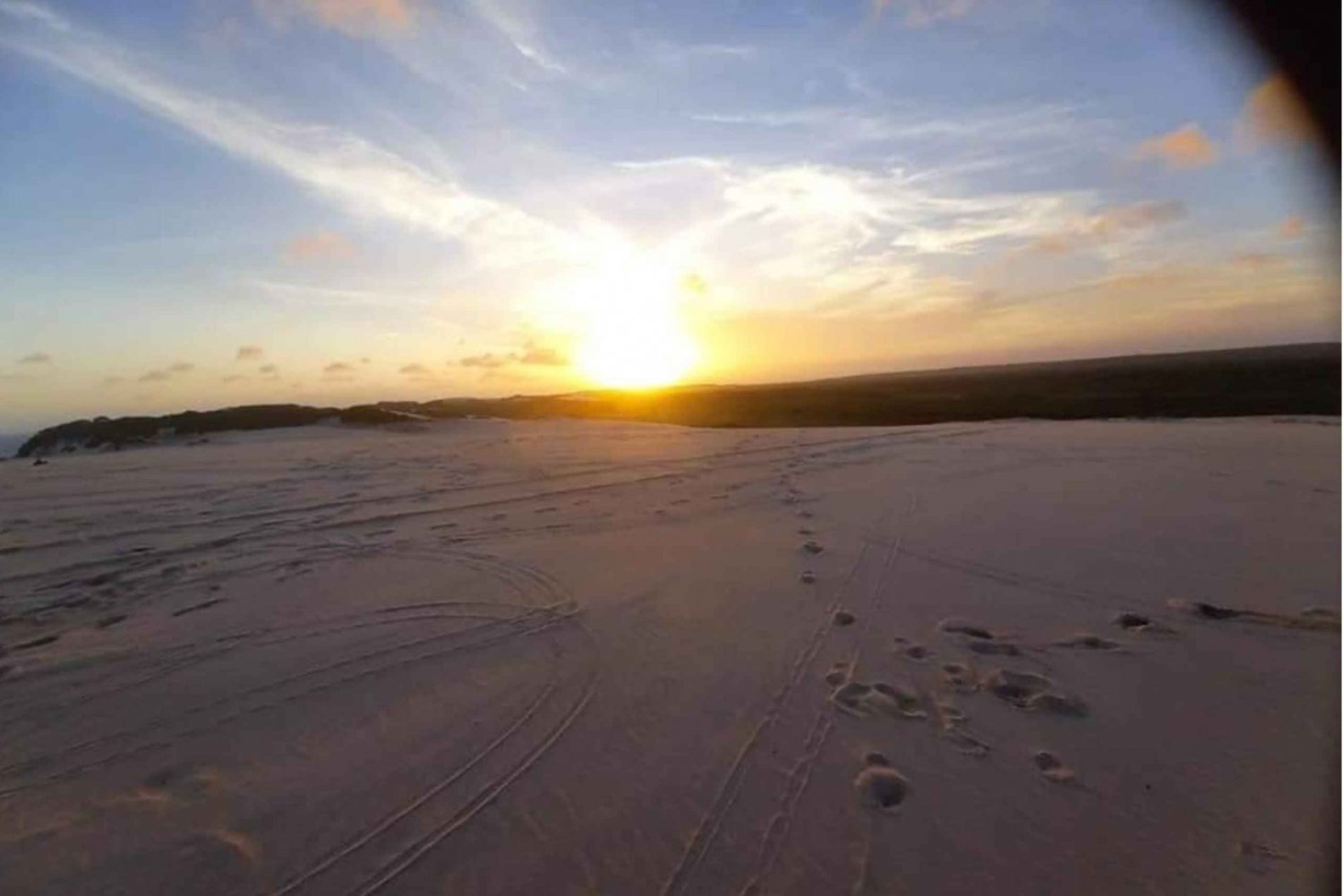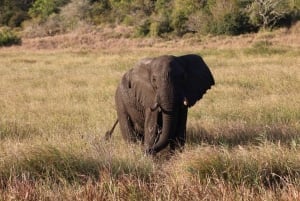Whale Watching in Mozambique: Witness Majestic Giants Up Close
Catch a glimpse of these incredible creatures in their natural habitat
Book Top Experiences and Tours in Mozambique:
If youʻre booking your trip to Mozambique last minute, we have you covered. Below are some of the top tours and experiences!- Safari Kruger National Park from Maputo
- Kruger National Park,
- Maputo City Tour
- Hlane National Park, Safari Day Tour
- Maputo International Airport - Hotel
1. Best Time to Go
The best time to go whale watching in Mozambique is during the months of July to November, which is the peak season for these magnificent creatures. During this time, humpback whales migrate from Antarctica to Mozambique's warm waters to breed and nurse their young. 
2. Top Whale Watching Spots
1. Tofo Beach: Located near Inhambane, Tofo Beach offers excellent opportunities for whale watching due to its prime location along the migration route.
2. Ponta do Ouro: This coastal town in southern Mozambique is known for its vibrant marine life, including frequent whale sightings.
3. Bazaruto Archipelago: Explore this stunning archipelago, which consists of several islands with crystal-clear waters that attract whales and other marine species. 
3. Choosing the Right Tour Operator
When booking a whale watching activity in Mozambique, it is important to choose a reputable tour operator. Look for operators that prioritize responsible and respectful viewing, have experienced guides, and adhere to strict guidelines to protect the whales and their natural habitat. 
4. What to Expect
During your whale watching excursion in Mozambique, you can expect to witness awe-inspiring displays of breaching, tail slapping, and spyhopping. These majestic giants often come up close to boats, providing incredible photo opportunities and unforgettable memories. 
5. Other Marine Life
Apart from the whales, Mozambique's waters are also home to a plethora of other marine life. Keep an eye out for dolphins, manta rays, sea turtles, and various species of colorful fish during your whale watching adventure. 
6. Responsible Whale Watching Practices
To ensure the well-being of the whales and their environment, follow these responsible whale watching practices: maintain a safe distance from the animals, avoid sudden movements or loud noise, and never attempt to touch or feed them. It is essential to respect their space and observe them in their natural habitat. 
7. What to Pack
1. Sunscreen: Protect your skin from the strong African sun with a high SPF sunscreen.
2. Binoculars: Enhance your whale watching experience by bringing a pair of binoculars to get a closer look at the whales.
3. Camera: Capture unforgettable moments with a good camera to document your encounters.
4. Light Jacket: Even though Mozambique is warm, it's advisable to pack a light jacket for cooler sea breezes.
5. Sea Sickness Medication: If you're prone to seasickness, consider bringing medication to ensure a comfortable trip. 
8. Local Cultural Experiences
While visiting Mozambique for whale watching, immerse yourself in the rich local culture. Explore vibrant markets, sample delicious seafood dishes, and interact with Mozambican communities to gain a deeper understanding of the country's heritage. 
9. Combine with Diving or Snorkeling
Make the most of your trip by combining whale watching with diving or snorkeling adventures. Mozambique is renowned for its exceptional diving sites, where you can explore vibrant coral reefs, encounter exotic fish species, and swim alongside marine life in their natural habitat. 
10. Accommodation Options
Mozambique offers a range of accommodation options to suit different budgets and preferences. From luxury beach resorts to cozy guesthouses, choose a place that provides easy access to the whale watching spots and offers breathtaking ocean views. 











